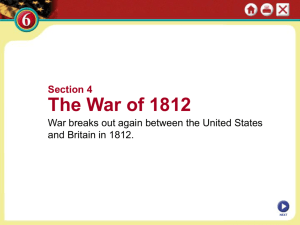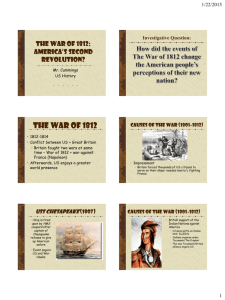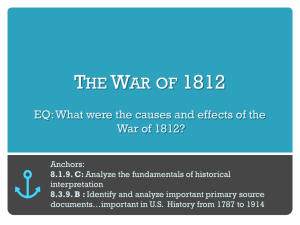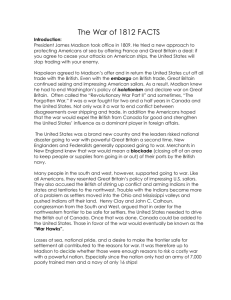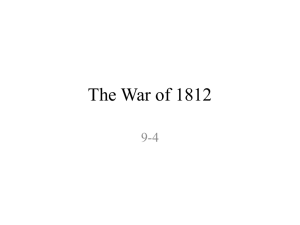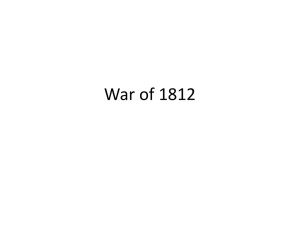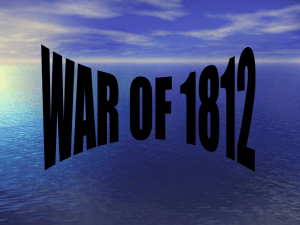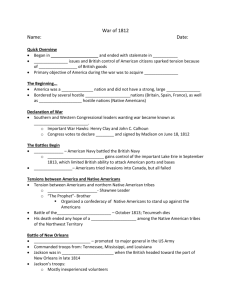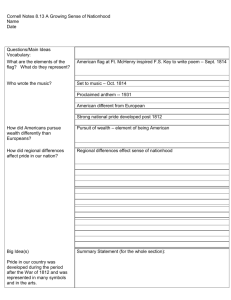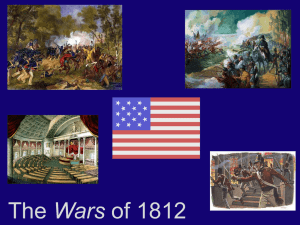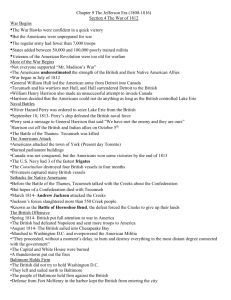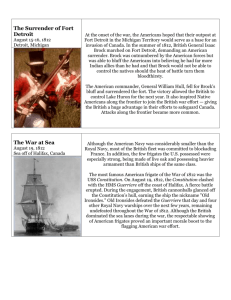Lesson 4.06 Handout: War of 1812 Causes of the War of 1812 Great
advertisement
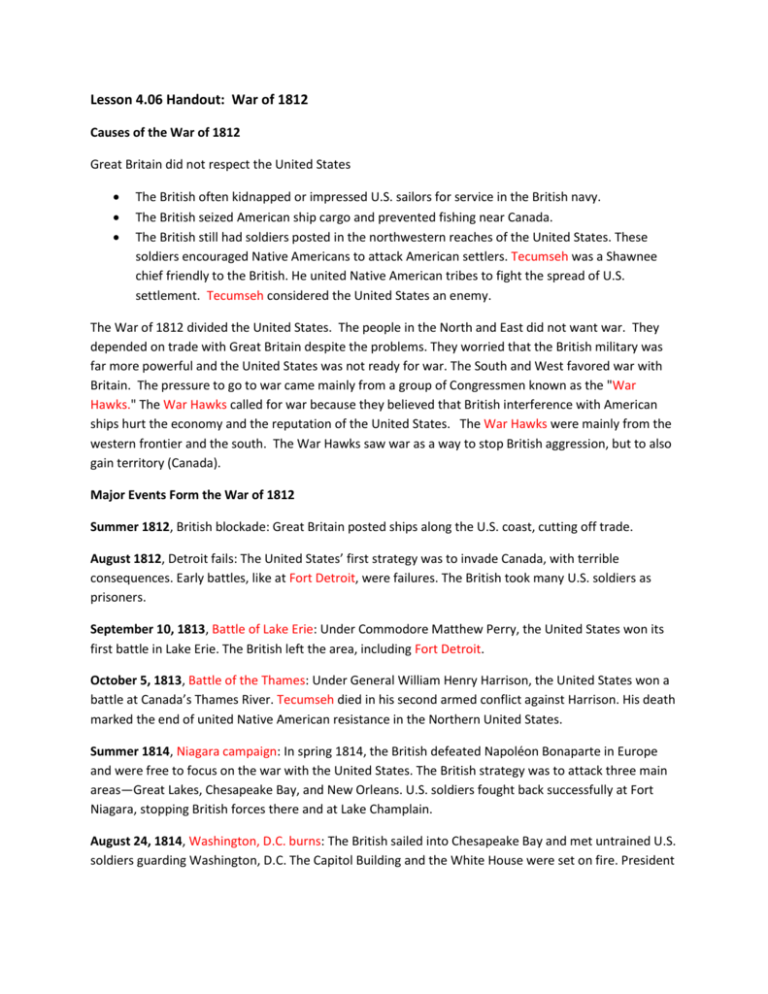
Lesson 4.06 Handout: War of 1812 Causes of the War of 1812 Great Britain did not respect the United States The British often kidnapped or impressed U.S. sailors for service in the British navy. The British seized American ship cargo and prevented fishing near Canada. The British still had soldiers posted in the northwestern reaches of the United States. These soldiers encouraged Native Americans to attack American settlers. Tecumseh was a Shawnee chief friendly to the British. He united Native American tribes to fight the spread of U.S. settlement. Tecumseh considered the United States an enemy. The War of 1812 divided the United States. The people in the North and East did not want war. They depended on trade with Great Britain despite the problems. They worried that the British military was far more powerful and the United States was not ready for war. The South and West favored war with Britain. The pressure to go to war came mainly from a group of Congressmen known as the "War Hawks." The War Hawks called for war because they believed that British interference with American ships hurt the economy and the reputation of the United States. The War Hawks were mainly from the western frontier and the south. The War Hawks saw war as a way to stop British aggression, but to also gain territory (Canada). Major Events Form the War of 1812 Summer 1812, British blockade: Great Britain posted ships along the U.S. coast, cutting off trade. August 1812, Detroit fails: The United States’ first strategy was to invade Canada, with terrible consequences. Early battles, like at Fort Detroit, were failures. The British took many U.S. soldiers as prisoners. September 10, 1813, Battle of Lake Erie: Under Commodore Matthew Perry, the United States won its first battle in Lake Erie. The British left the area, including Fort Detroit. October 5, 1813, Battle of the Thames: Under General William Henry Harrison, the United States won a battle at Canada’s Thames River. Tecumseh died in his second armed conflict against Harrison. His death marked the end of united Native American resistance in the Northern United States. Summer 1814, Niagara campaign: In spring 1814, the British defeated Napoléon Bonaparte in Europe and were free to focus on the war with the United States. The British strategy was to attack three main areas—Great Lakes, Chesapeake Bay, and New Orleans. U.S. soldiers fought back successfully at Fort Niagara, stopping British forces there and at Lake Champlain. August 24, 1814, Washington, D.C. burns: The British sailed into Chesapeake Bay and met untrained U.S. soldiers guarding Washington, D.C. The Capitol Building and the White House were set on fire. President Madison and his wife, Dolley, fled the burning mansion, saving several national treasures. The British then continued north toward Baltimore. September 13, 1814, Fort McHenry resists: Fort McHenry guarded Baltimore, and the British began shelling the fort from two miles offshore. American cannonballs fell into the bay but 1,000 Americans were able to hold the fort. Despite an attack of more than 1,500 cannonballs, American soldiers raised the U.S. flag over Fort McHenry early on September 14. From the ship where the British held him during the battle, Francis Scott Key spotted the flag that inspired his now-famous poem. January 8, 1815, New Orleans attack: General Andrew Jackson led an army that included Native Americans, French soldiers, and freed slaves to New Orleans. There he fought the battle that made him a national hero. U.S. forces stopped the British from reaching their goal. However, this battle had no effect on the war’s outcome. Peace talks had begun between the United States and Great Britain two weeks before. Out Come of the War of 1812 By the end of 1814, Great Britain’s leaders did not feel the war was worth the cost. The United States and Great Britain signed the Treaty of Ghent, which only returned the nations to prewar conditions. The treaty addressed none of the issues that caused the war. However, the nations did agree to have further talks.
